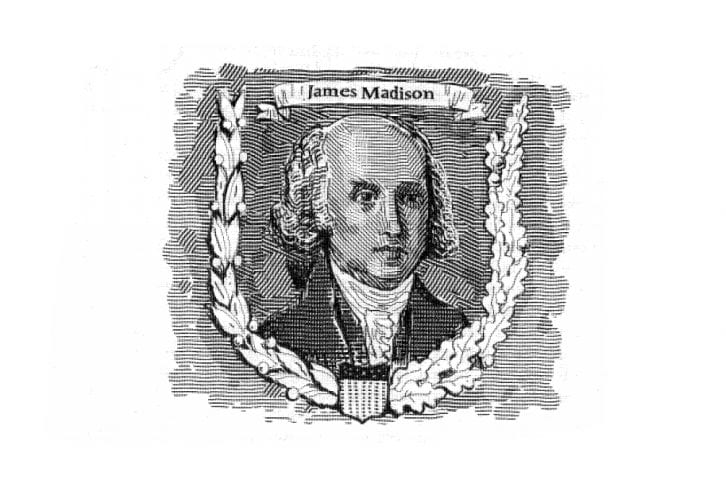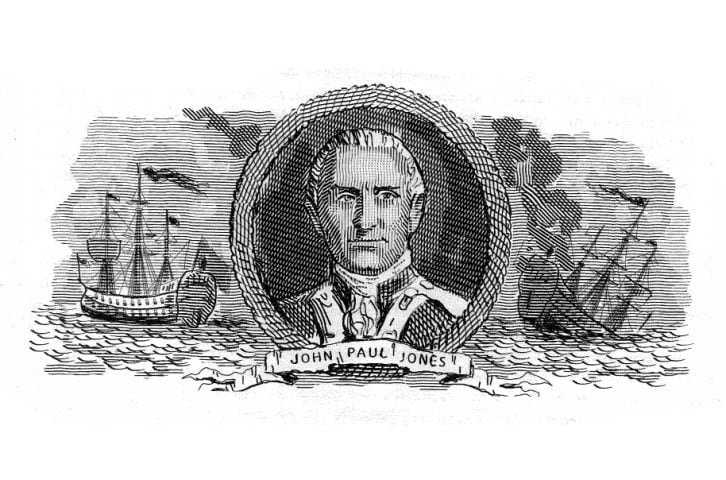Books Reviewed
A review of The Complete Works of Shakespeare (5th edition), edited by David Bevington
Re-writing Shakespeare is nothing new. The Nahum Tate version of King Lear—with the happy ending—held the stage for nearly a century and a half. The great actors of the romantic age, Kean and Booth and Macready, not only spotlighted the heroes in the tragedies but felt free to beef up their roles. Directors began more than 50 years ago to monkey with the historical settings of the play, often with imaginative and instructive results. Scholars, critics, and directors have ridden various hobbyhorses through the plays for years, introducing us to Freudian Hamlets and Marxist King Lears and feminist Tamings of the Shrew.
Recent Shakespeare production and scholarship, however, add a perverse twist to this long tradition. We no longer care what the Bard actually wrote. Years of deconstructionist theorizing have taught us that words are needy and we, readers or actors or scholars, have the right, indeed the obligation, to give them the gift of meaning—our meaning, the more bizarre the better.
For the 23 years that I've taught Shakespeare at the United States Naval Academy, I have always used the same text, The Complete Works of Shakespeare, edited by David Bevington of the University of Chicago. Professor Bevington is an old-school scholar with a distinguished career. The book he edited had many advantages: large print, full character names before each speech, specific indications of settings, modernized spellings, solid introductions that connected the plays to the students' experience of love and politics, morality and order, passion and faith, and comprehensive but not overwhelming notes. Every few years a new edition would appear, and I would open it with interest and a little apprehension. But the changes would be minor—thinner paper (approaching the substance of tissue, a malady afflicting many recent books), hints here and there of encroaching academic perversity in the notes—nothing sufficient to make me seek another text. The 4th edition's introduction to The Tempest caused me to swallow hard: We learn there that Prospero's authority "is problematic to us because he seems so patriarchal, colonialist, even sexist and racist in his arrogating to himself the right and responsibility to control others in the name of Western and Christian values." But this is an imperfect world, and I soldiered on.
Notified that a 5th Edition would appear this fall, I took time to examine it closely. Many of the introductions remain the same; but new editors and commentators have significantly altered others. Despite the myth of progress that reigns in all the disciplines of modern academia, "new" is often far from "improved." Apparently, Professor Bevington has either ignored the changes or allowed the young scholar-colts to have a romp. In some of the new introductory essays, especially under the guise of new brief histories of stage performance, questionable judgment, to put it mildly, has crept in. For example, the introduction to Othello ends with the following observation:
In another recent development, Emilia has stood out in several productions as the raissoneur and heroic figure in the play, speaking as she does on behalf of maltreated women, urging Desdemona to stand up for her rights. One recent Chicago production went so far as to rewrite the ending: Othello and Iago both survive unpunished for what they have done, while Desdemona and Emilia lie dead as their innocent victims. This deliberate and provocative overstatement might seem extreme to some viewers, but unquestionably did signal the direction of recent performance history of the profoundly disturbing play.
It may be time to stop buying tickets to that great play.
The current obsession in academia is "queer theory," and the homoerotic is everywhere, not just in Shakespeare studies. But this particular perversity fills the introductions to the new Bevington, especially the introductions to the comedies. Compare the following passages, the first from the introduction to As You Like It in the 4th Edition, essentially a carry-over from earlier editions:
Rosalind's disguise name, Ganymede, taken from Jove's amorous cupbearer, has homoerotic connotations that are easily misinterpreted today. Shakespeare delicately acknowledges the suggestion, to be sure, both in Phoebe's pursuit of a young lady (but really a boy actor) in male attire, and in Orlando's courtship of "Ganymede" as though addressed to Rosalind. Yet this innocent titillation, found also in Shakespeare's source, is not meant to hint at homosexual attraction as we understand it. On the contrary, the point is that Orlando can speak frankly and personally to "Ganymede" as to a perfect friend, one to whom he can relate in platonically spiritual terms without the distracting note of sexual interest.
These are eminently sane and sensible remarks. Now from the Introduction to As You Like It in the 5th Edition:
Rosalind's disguise name, Ganymede, has connotations that suggest ways in which human sexuality can be partly understood as socially constructed. If Rosalind in disguise as Ganymede wins the affection and eventually the love of Orlando, while her father and the others are equally taken in by the disguise, are maleness and femaleness chiefly matters of sartorial convention and superficial appearance? When Phoebe falls in love with Ganymede, is not her infatuation a way of showing that the roles of the sexes can be put on and off? Theatrically, the device of having a young male actor play Rosalind who then disguises him/herself as a young man adds to the witty confusion of sexual identities by introducing homoerotic possibilities. Not only can the roles of the sexes be put on and off, sexual desire itself is unstable….
This is ideology masquerading as interpretation.
* * *
To be sure, the range of possible interpretations of Shakespeare's work is wide, for he encompasses all of humanity and tells profound and mysterious truths about human life. Such inexhaustible expansiveness invites discussion and dispute and differences. At the end of the Introduction to Richard II in this volume, for example, there is a brief but superb account of various interpretations of that rich role by leading actors. Professor Charles Forker of Indiana University provides that account; another old-school scholar, he knows more about that play than any other living soul. Too many of the revised introductions, however, are more interested in advancing the latest academic-political orthodoxy than in discovering and illuminating the natural and conventional moral order so abundantly on display in Shakespeare's works. Nothing is more orthodox—still—among contemporary literary critics than the alleged truth that there is no truth, that all interpretations are valid except the author's own.
Thus Puck in A Midsummer Night's Dream can be presented as "the denizen of a drug culture, with the love potion as the weed he gleefully distributes. The experience of the forest becomes a drug-induced 'high,' for audiences as for the actors. The fairies, sometimes played by adult and hairy males, can exhibit a streak of cruelty." And, indeed, in a recent production at the Shakespeare Theater in Washington, D.C., the fairies were hairy males who carried something like miners' lights. So much for lightness and charm and magic. This same Dream introduction gives the game away in words that are echoed in many of the other essays: "These modern interpretations are arguably neither more nor less 'true' to Shakespeare's text than earlier or more 'traditional' versions. What they do demonstrate is the play's remarkable permeability and openness to differing views."
The new Bevington retails for $90; in good conscience, I cannot ask students to fork over such a sum of cash for a book that is now rife with nonsense. So next fall I'll assign The Riverside Shakespeare, which fortunately is still in its 2nd edition. I fervently hope it is not soon updated.
Of course, the Bevington volume has come to reflect the universities it serves, where young students pay small fortunes to be taught that there is no enduring meaning or beauty to be found in the poetry of Shakespeare, no tradition worth preserving, no "truth" other than personal whim and innovative foolery. If the price of the new Bevington is petty theft, the tuitions charged by these institutions have become, at least for the study of the humanities, highway robbery.
I know a father who gave his son the equivalent of a year's tuition and told the lad to go to Europe, to travel, to observe, to learn for as long as the money would hold out. The young man came back after two-and-a-half years, mature and educated, and instantly found a good job. The time has come for imaginative, alternative learning. I talked recently with a very intelligent young woman who loves literature; she is completing her sophomore year at Yale, where she had hoped to pursue an English Literature major. She informed me with sorrow that she was abandoning that plan. Her reason was quite simple: she had already sat through too many classes where lunacy prevailed. She mentioned the possibility of looking at traditional Catholic convents. Could this be the first refreshing drop of a wave of the future? It would not be the first time that civilization was preserved in the convents and the monasteries. Nymph, in thy orisons, be all of Academia's sins remembered.



